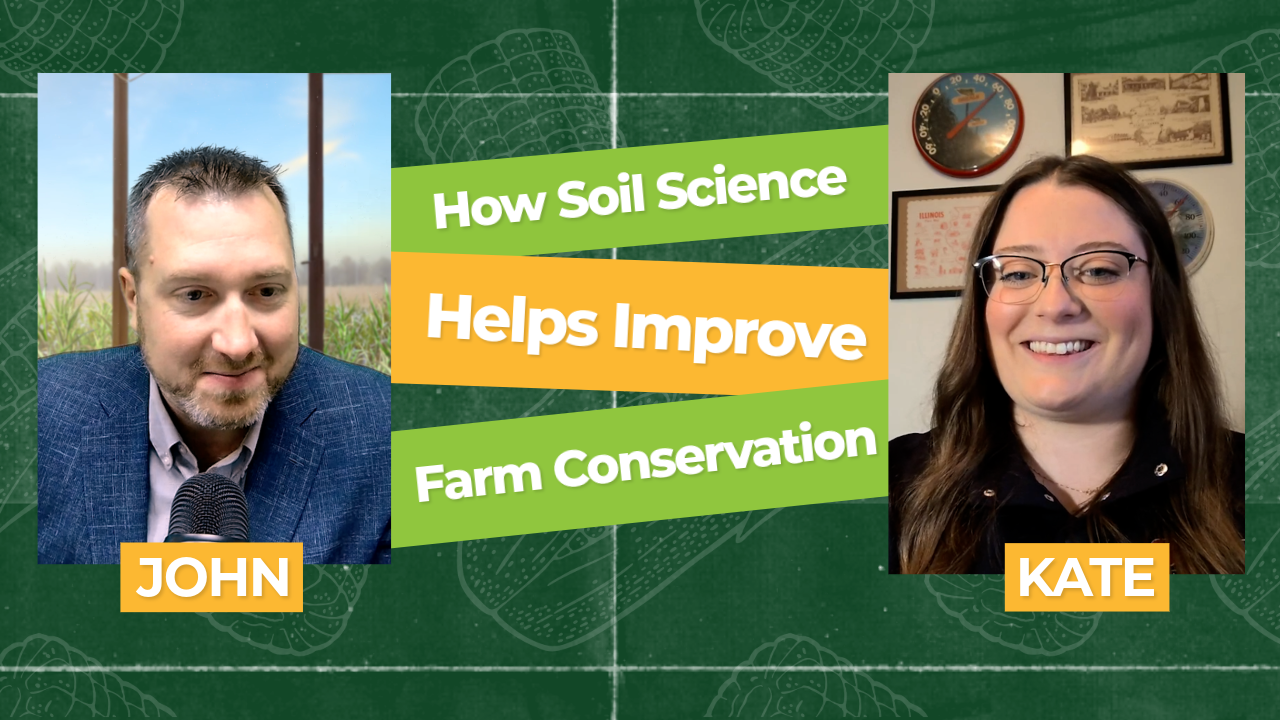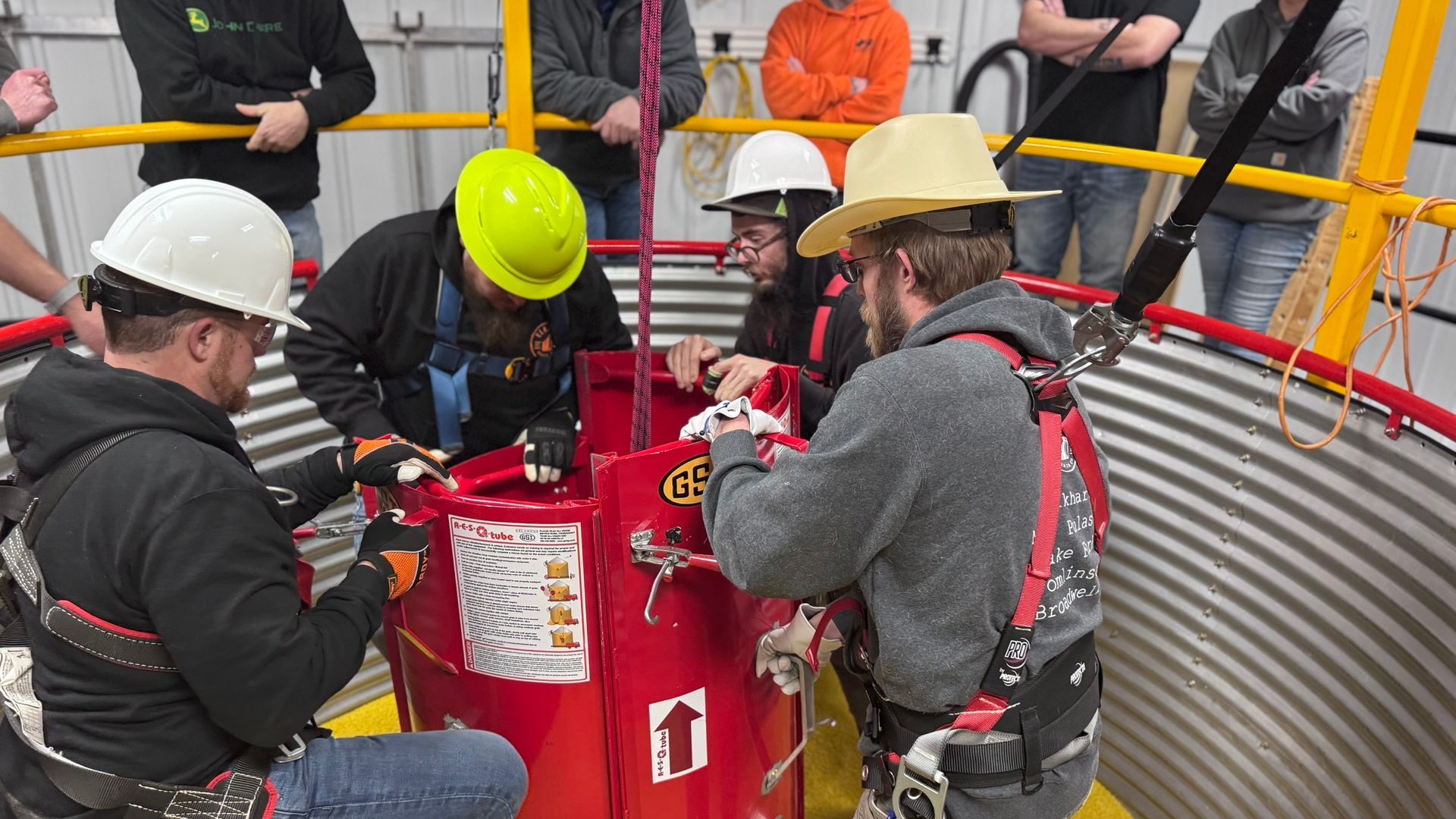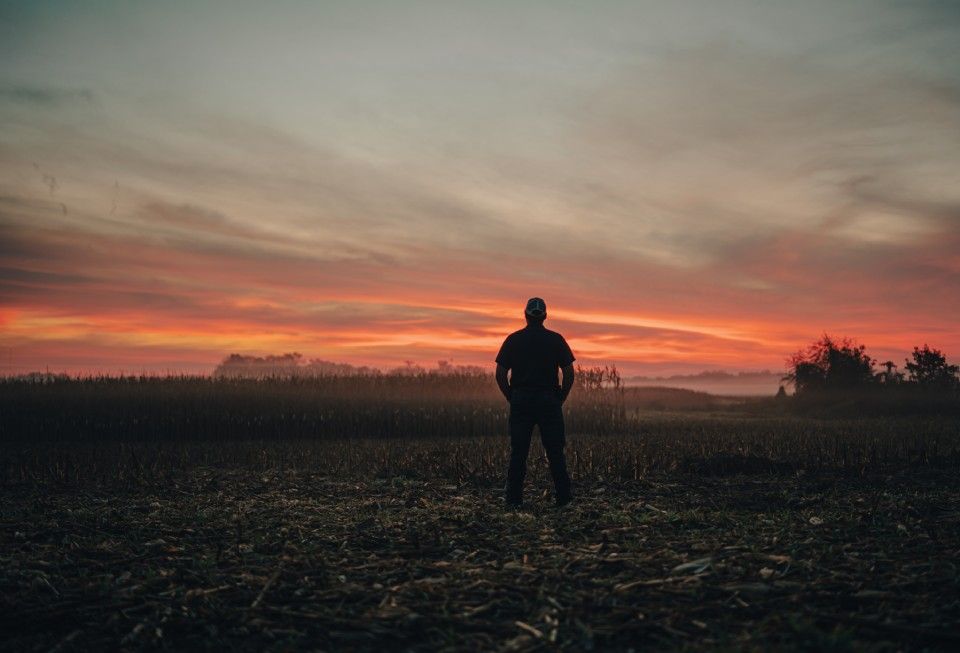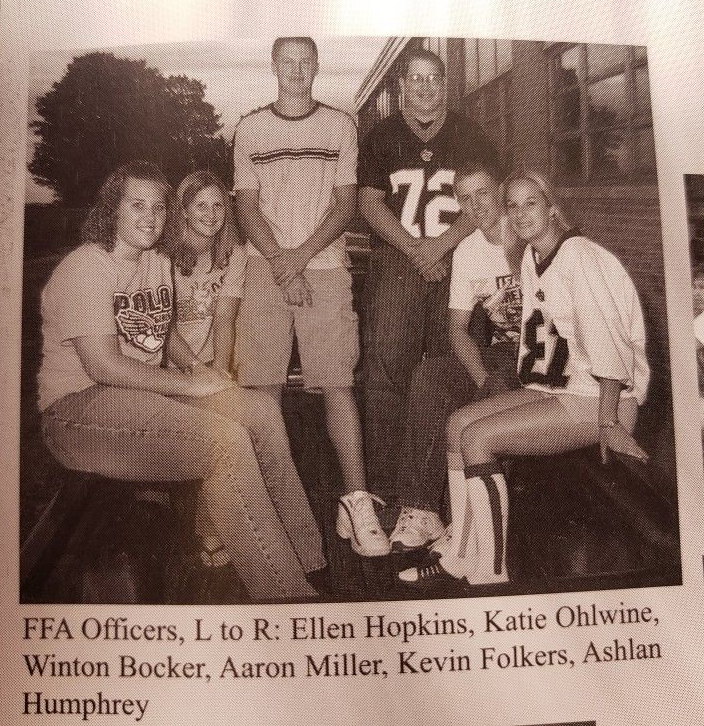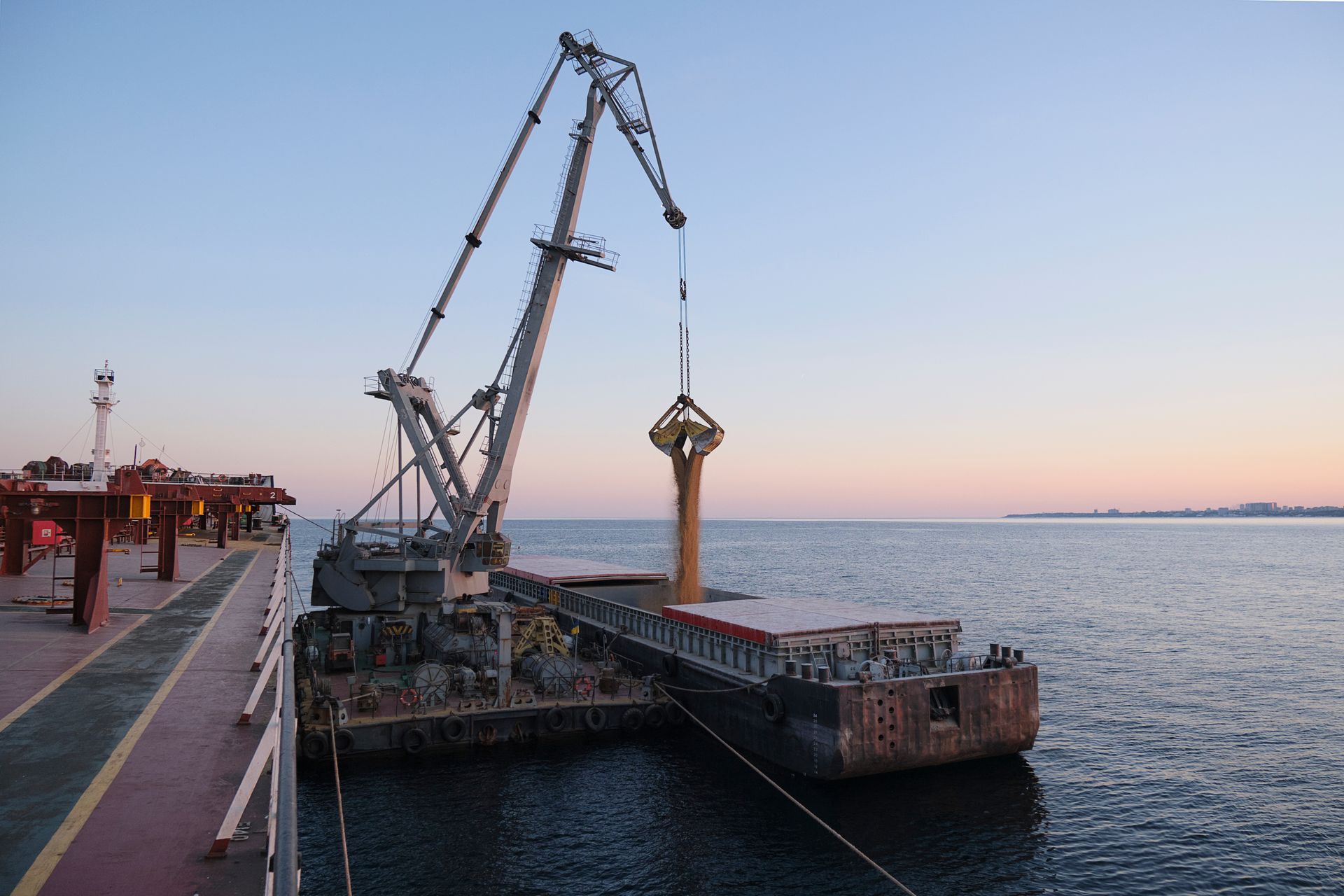Dan Sanderson Receives Illinois Leopold Conservation Award
Illinois Farmer Awarded Leopold Conservation Award
Dan Sanderson is the recipient of the 2025 Illinois Leopold Conservation Award®.
The award honors farmers and forestland owners who go above and beyond in the management of soil health, water quality, and wildlife habitat on working land.
Dan Sanderson, a farmer from Clare in DeKalb County, was presented with the award at the Illinois Farm Progress Days on Aug. 27. He receives $10,000 for being selected.
Sand County Foundation and national sponsor American Farmland Trust will present Leopold Conservation Awards to landowners in 28 states this year. In Illinois the award is presented annually with IL Corn and Illinois Soybean Association.
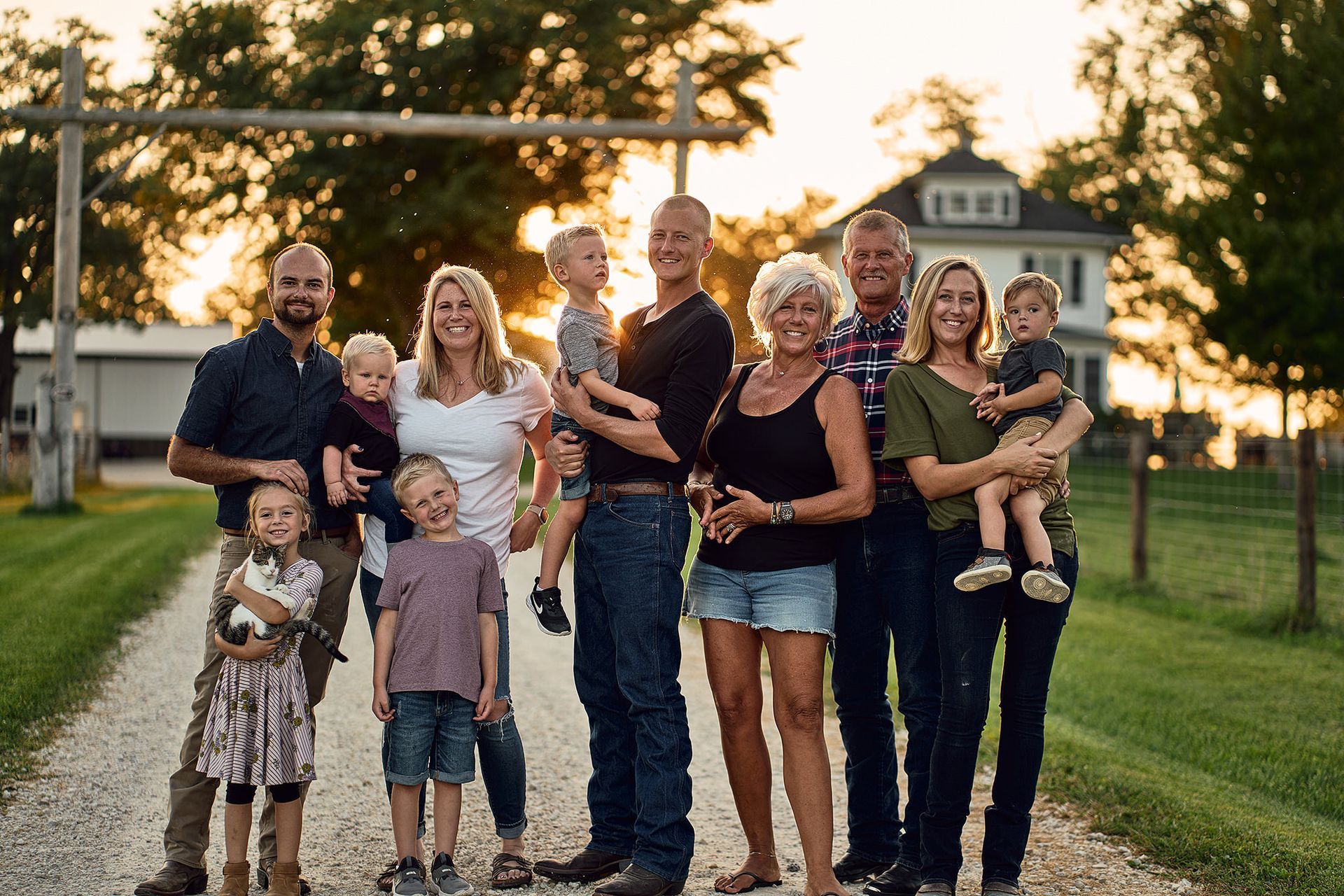
Given in honor of renowned conservationist Aldo Leopold, the award recognizes farmers and forestland owners who inspire others with their dedication to environmental improvement. In his influential 1949 book, A Sand County Almanac, Leopold advocated for “a land ethic,” an ethical relationship between people and the land they own and manage.
Illinois landowners were encouraged to apply, or be nominated, for the award. Applications were reviewed by an independent panel of Illinois agricultural and conservation leaders.
ABOUT DAN SANDERSON
Long before regenerative agriculture became a widely recognized concept, Dan Sanderson was quietly adopting many of its core principles.
As a young farmer in the 1980s he noticed land enrolled in the federal Conservation Reserve Program (CRP) produced environmental benefits of rejuvenated soils and reestablished pollinator habitat.
Since then, he’s voluntarily integrated regenerative practices of rotational grazing, reduced pesticide use, minimal tillage, and diverse cover cropping across his family’s 3,200 acres in DeKalb County, and especially at his 160-acre homestead named Pasture Grazed Regenerative Farm.
Dan and his wife Hattie, their grown children Trent and Rosie, and their families, all play a role at Pasture Grazed Regenerative Farm where beef and pork is sold directly to consumers from an on-farm store. Conservation efforts to improve the land are credited with making the farm more resilient to financial volatility and increasingly erratic weather.
Dan credits a Soil Health Academy workshop in 2017 with transforming the way he farms. He now closely observes how each cover crop responds to different soil types, moisture conditions, and grazing pressure, and adjusts as needed to optimize soil health and productivity.
Never afraid to change course when he sees a better path, Dan restructures the grazing rotation schedule if livestock overgraze. When field data showed that fertilizer applications were not returning a profit, he tailored application rates.
“He listens to the land, and it shows in every decision he makes,” his daughter Rosie wrote in the nomination for the Illinois Leopold Conservation Award.
The Sandersons recently took a big step forward in how their pastures are managed. They began using virtual fencing technology to reduce the time and labor it takes to move cattle. GPS-enabled, solar-powered collars guide cattle without the need for physical fencing. With the touch of a button, grazing areas are determined while adjusting for weather, forage conditions, and soil health goals in real time. Pastures regenerate faster with better-managed rest periods between grazings.
Cattle and sheep are rotationally grazed across pastures because they interact with the land differently. Cattle graze taller grasses while sheep prefer shorter plants and forbs. Their unique grazing behaviors help control weeds and encourage diverse forage regrowth. Their difference in manure and hoof action also produces environmental benefits. Hogs, which are good at digging, are strategically pastured in select areas to stir up and reset less-than-desirable soils. Keeping livestock away from ecologically sensitive areas supports water quality, soil structure, and biodiversity.
By prioritizing soil health, plant diversity, and animal integration, Dan is helping rebuild the region’s ecosystems. His actions impact pollinators that travel to neighboring fields, water that flows to nearby creeks, and wildlife that cross invisible property boundaries.
Dan’s farming model offers a counterpoint to conventional systems that rely heavily on synthetic inputs, plant monocultures, and livestock confinement. He shows that farming doesn’t have to come at the expense of natural resources, but instead can restore them.
Not only is his farm a platform for teaching others with tours, but Dan also recently published a book, Grounded: One Farmer’s Journey to Regenerative Agriculture, to encourage others to embrace conservation.
There is no rulebook or regulation that requires the level of care, observation, and adaptation that Dan brings to farming. His choices are guided by a land ethic that views land as not just a resource, but a living system that deserves respect and restoration.
ACCOLADES
“IL Corn is grateful to see corn farmers with heart and passion for sustainability,” said Jeff Scates, IL Corn Marketing Board Chairman. “Ben Sanderson is a prime example of having the true values and efforts as Aldo Leopold; implementing thoughtful, regenerative practices that restore the land. We’re proud to honor his commitment to conservation with this year’s Leopold Conservation Award.”
“The Illinois Soybean Association is proud to recognize Illinois farmers, such as Dan Sanderson, who dedicate their time to preserving and improving soil health,” said Ron Kindred, Illinois Soybean Association Chairman. “As implementing conservation practices become more integral to our industry, it’s important that we celebrate those who are leading the charge.”
“These award recipients are examples of how Aldo Leopold’s land ethic is alive and well today,” said Kevin McAleese, Sand County Foundation President and CEO. “Their dedication to conservation is both an inspiration to their peers as well as a reminder to all how important thoughtful agriculture is to clean water, healthy soil, and wildlife habitat.”
“As the national sponsor for Sand County Foundation’s Leopold Conservation Award, American Farmland Trust celebrates the hard work and dedication of the award recipients,” said John Piotti, AFT President and CEO. “At AFT we believe that exemplary conservation involves the land itself, the practices employed on the land, and the people who steward it. This award recognizes the integral role of all three.”
The Illinois Leopold Conservation Award is made possible through the generous support of American Farmland Trust, IL Corn, Illinois Soybean Association, Sand County Foundation, Farm Credit Illinois, USDA Natural Resources Conservation Service of Illinois, Association of Illinois Soil & Water Conservation Districts, Compeer Financial, Illinois Department of Agriculture, and Illinois Sustainable Ag Partnership.
For more information on the award, visit www.leopoldconservationaward.org.


